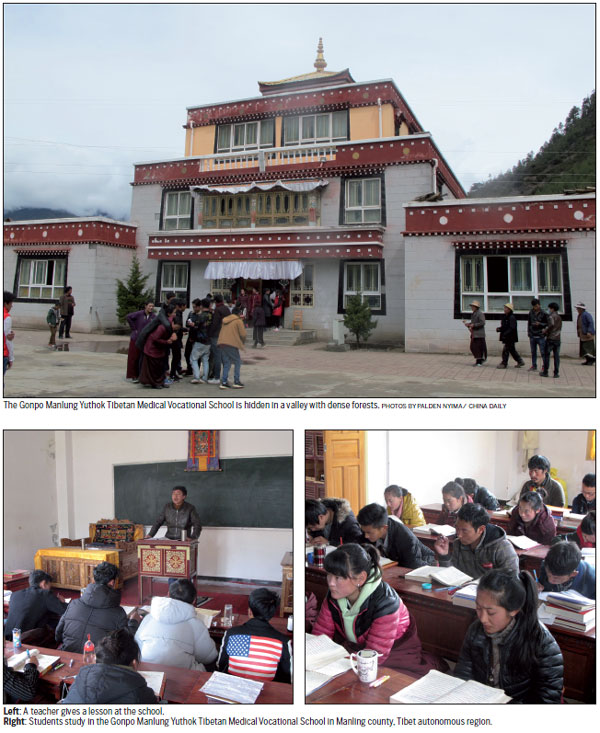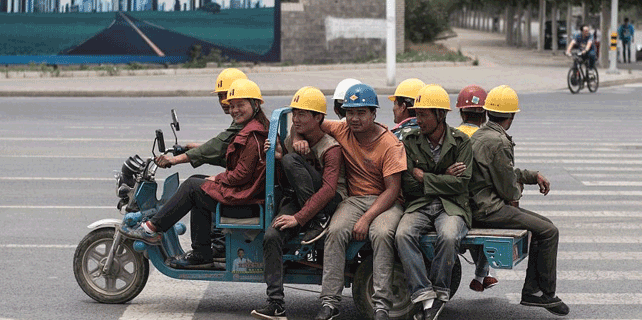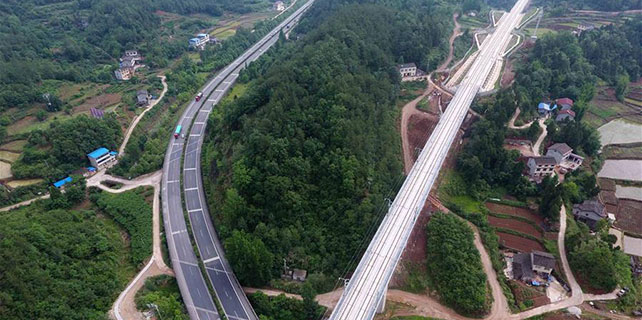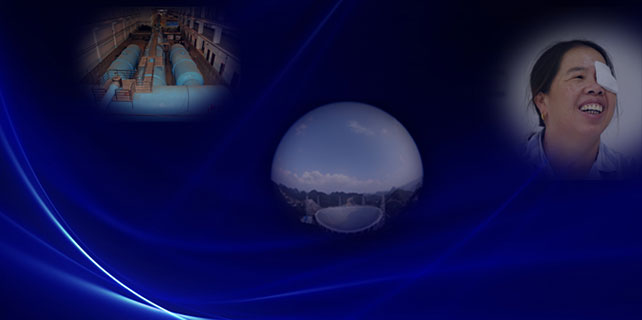Tibetan medical school rooted in tradition

Vocational institution gives people from autonomous region's rural areas opportunity for education
The Tibet autonomous region's Manling county is considered an important Tibetan historical site, as it is where the first Tibetan medical and astrology school was founded in the early eighth century.
Sponsored by the Qizheng Tibetan Medicine Group, a leading Tibetan medicine company, and with the support of local education bureaus, the Gonpo Manlung Yuthok Tibetan Medical Vocational School was founded in 2004.
The school is located in Neyul township, which boasts an astonishingly beautiful landscape and a peaceful environment in a valley surrounded by thick woods and watched over by snow-capped mountains.
In the eighth century, the Tibetan King Trisong Detsan held a forum to discuss Tibetan medical science.
Yuthok Yontan Gonpo was invited to the forum, which lasted several days. His medical knowledge and skills were acknowledged by the king and his fellows, and he was appointed as the king's doctor, with the areas of Dakpo, Konpo and Chunpo presented to him as a reward.
Traditionally, Manling belongs to the Konpo area. When Yuthok Yontan Gonpo was 55, he went to Manling and established Tibet's first medical and astrology school. He remained there for the rest of his life, training more than 1,000 medical students, according to the school's historical records.
The Gonpo Manlung Yuthok Tibetan Medical Vocational School has nine medical faculties and more than 80 students, with more than 500 students having graduated from the school by the end of 2015.
The school mainly enrolls students from rural areas of Tibet, who are required to have at least a basic level of education, but are exempt from paying all fees after enrollment.
The major subject taught in the school is Tibetan medicine, but it also provides courses in politics, mathematics, Chinese, astrology, Tibetan grammar and modern medicine.
Students have to study for at least three years to obtain a qualification, with some studying for five years to obtain a higher degree.
Every summer, teachers take the students to the wild to teach them how to identify medicinal herbs. A small amount of herbs are collected for teaching purposes, but most of the herbs are used for pharmaceutical purposes.
As a way to encourage the local farmers to plant wild medical herbs, some villagers in the county are involved in planting project supported by the local government.
Tsetan Lhundrub, a teacher at the school, said more than 500 types of herbs have been recognized on the mountains and in the forests in the valley by teachers and Tibetan medicine masters over the years.
Tsethan Lhundrub, 39, has been teaching medical theory and Tibetan grammar for seven years since graduating from the Tibet Medical College.
"Different kinds of diseases are treated at the school's hospital, with a focus on diseases of the kidney, arthropathy and gallbladder problems, as well as stomachache," he said.
"Medical costs are exempted for patients from extremely poor or disabled families, while costs for all other patients are much cheaper here than at other hospitals."
Genyen is a nun from Tibet's Konpo Gyada county. She has been studying at the school for two years and plans to study there for one more year.
Genyen, 31, said she is privileged to have a teacher who is a living Buddha, and that there are more than 40 students in her class.
"In addition to teaching us medical theory, our teacher also takes us to the mountains to learn about medicinal herbs," Genyen said.
"Brining benefits to others is the main point of my religion. I want to be a doctor in the future, and I hope I can benefit more people by removing their discomfort and pain."
Lhakpa Tsering, another student at the school, has been studying there for two and a half years and said he appreciates that the school accepted him after he failed his high school entrance exam.
"I plan to study here for five years. I want to be a doctor of Tibetan medicine in my village upon my graduation," the 23-year-old said.
"Many of my fellow villagers have difficulties communicating with doctors as they do not speak fluent Mandarin Chinese, so I want to help solve this issue."
palden_nyima@chinadaily.com.cn
















